Programmatic Steering Committee | International Advisory Committee | Executive Body | Knowledge Translation Sub-Committee
Programmatic Steering Committee
The Programmatic Steering Committee (PSC) is comprised of eight members that each serve as the Principal Investigator on one or more projects, and are affiliated with a Canadian academic institution. The PSC is the primary governing body for A SHARED Future on all non-financial matters (The Executive Body), and is bound to the terms of reference found here.
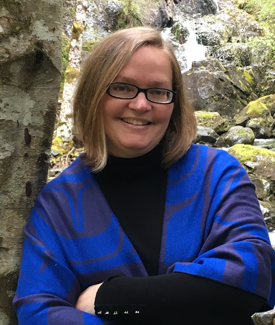
Heather Castleden
Continuing Co-Director
Impact Chair in Transformative Governance for Planetary Health
Professor, Department Public Administration, University of Victoria
Director, Heath, Environments, and Communities Research Lab
Heather has spent her academic career as a geographer working at the theoretical, methodological, and empirical nexus of power and resistance, relationships to place, and moral/ethical accountability. Her research is community-based and participatory, in partnerships with Indigenous peoples, communities, organizations, and governments on topics important to them, focusing on the politics of knowledge production in environment and health justice.
Website: www.heclab.com
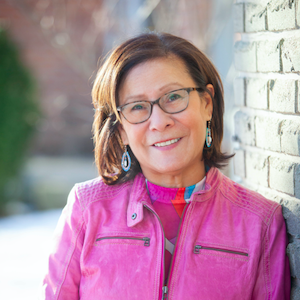
Diana Lewis
Continuing Co-Director
Canada Research Chair (Tier II) Indigenous Environmental Health Governance
Assistant Professor, Department of Geography, Environment, and Geomatics, University of Guelph
Director, IndigenERA Lab
Diana has worked with multiple First Nations directly, as well as many Indigenous political organizations, federal government agencies, and program delivery organizations in Canada over 30 years. Diana is Mi’kmaq from Sipekne’katik First Nation in Nova Scotia, and holds a Master of Resource and Environmental Management degree. Her PhD research focuses on resource development, and the impacts of resource development on the health of Indigenous peoples, using a methodology that combines both Indigenous and western-based sciences.
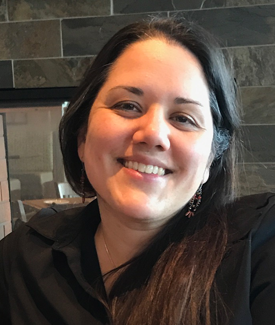
Mary Beth Doucette
Purdy Crawford Chair
PhD Candidate
Shannon School of Business
Cape Breton University
Mary Beth is a Mi’kmaw who has excelled as a scholar, obtaining a SSHRC Canada graduate scholarship during her graduate studies at CBU. Her graduate research in the MBA focused on community economic development in First Nations, examining the role of cultural tourism. She engaged in primary research with Elders and band administrators at Membertou in regards to a proposed Heritage Park. She is a dedicated community volunteer which, combined with her background in industrial engineering and community economic development, made her a strong addition to the management group at Membertou as Director, Quality Assurance and ISO Compliance.

Debbie Martin
Canada Research Chair in Indigenous Peoples Health and Well-Being Associate Professor
Health Promotion Associate Professor
Dalhousie University
Debbie has received national recognition for her research with NunatuKavut communities around issues of oral health, water security, food sovereignty, and health needs assessment. She has worked extensively with Mi’kmaq communities, as well as Indigenous organizations at the local, regional, national, and international level.
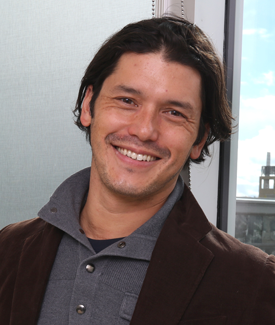
Jeff Masuda
Professor, School of Public Health and Social Policy
University of Victoria
Director, Centre for Environmental Health Equity
Jeff is the Sex and Gender Champion on our team, and the Knowledge Translation (KT) Champion. In his capacity as KT champion, Jeff encourages the team to reflect critically on their individual and group relationship between knowledge and power, endeavouring to ensure the program contributes to health equity gains through institutional and professional reflexivity, decolonization, and promotion of Indigenous autonomy. As Sex/Gender co-Champion, he guides the team toward gender and sex balanced approaches in research design, analysis, and knowledge translation.
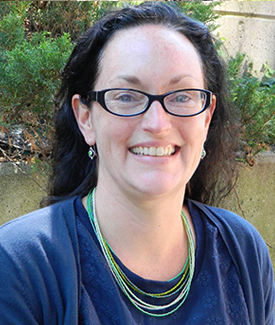
Hannah Tait Neufeld
Associate Professor, School of Public Health Sciences
University of Waterloo
Hannah is an Indigenous health scholar, educated primarily in the fields of nutrition and public health, with training in a wide range of disciplines such as geography, First Nation studies and international development. Thus far in her academic career, she has been involved in multidisciplinary and collaborative research with Indigenous women focused on the determinants of food choice and chronic disease prevention. Hannah also has experience working in international nutrition policy and evidence-based guideline development with the World Health Organization. Her current research interests continue to focus on health inequalities, taking into consideration community interests, along with environmental and other factors influencing maternal and child health, along with Indigenous food systems globally.
International Advisory Committee
The International Advisory Committee is comprised of academic scholars, private consultants, and organizational representatives from Australia, Canada, New Zealand, Sweden, and The United States. This committee meets bi-annually via teleconference, where participants share their regional-specific experiences through round table discussions on various topics, as well as providing general updates to the research team.
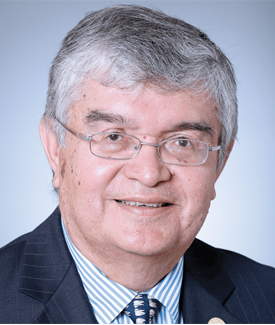
Simon Brascoupé
Chair
Adjunct Research Professor & Former Chair of the CIHR Institute of Aboriginal Peoples Health Advisory Board
Carleton University, Ontario
Simon Brascoupé Anishinabeg/Haudenausanee – Bear Clan is a member of Kitigan Zibi Anishinabeg First Nation, Maniwaki, Quebec. He is an Adjunct Research Professor at Carleton University and Trent University. He was recently designated Certified First Nations Health Manager (CFNHM) from the First Nations Health Manager Association. He has a research interest in land based healing, traditional medicine and traditional knowledge. He conducts research and writes on cultural competency and safety. He has written and worked in the field of traditional knowledge and intellectual Property Rights. He is the Chair of the CIHR Institute of Aboriginal Peoples Health Advisory Board. Previously Simon Brascoupé was Chief Executive Officer, National Aboriginal Health Organization; Director, Primary Health Care Division, First Nations and Inuit Health Branch, Health Canada; and Director, Aboriginal Affairs Branch, Environment Canada. Simon was invited to fill the role of Chair for the International Advisory Committee based on his tremendous experience in leadership and facilitation roles, and close connection to the Program Team members.

Heather Castleden
Continuing Co-Director
Impact Chair in Transformative Governance for Planetary Health
Professor, Department Public Administration, University of Victoria
Director, Heath, Environments, and Communities Research Lab
Heather has spent her academic career as a geographer working at the theoretical, methodological, and empirical nexus of power and resistance, relationships to place, and moral/ethical accountability. Her research is community-based and participatory, in partnerships with Indigenous peoples, communities, organizations, and governments on topics important to them, focusing on the politics of knowledge production in environment and health justice.
Website: www.heclab.com
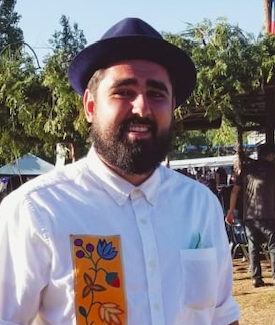
Shady Hafez
Committee Member
National Association of Friendship Centres
Shady Hafez is currently the Research Advisor at the National Association of Friendship Centres (NAFC). He holds an MA in Indigenous Governance from the University of Victoria and is currently supporting the development of research capacity and projects within the NAFC in the hopes of creating better programs and services for urban Indigenous peoples. Shady is Algonquin Anishinabeg and Syrian from Kitigan Zibi Anishinabeg.
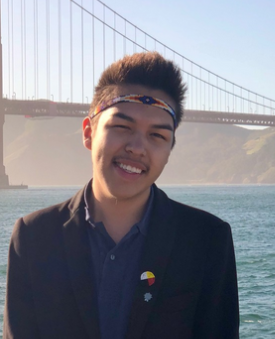
Mihskakwan James Harper
Committee Member
Mihskakwan (mih-skuk-win) James Harper is a niheyaw (nih-he-yow) engineering student from Sturgeon Lake Cree Nation. He completed his bachelor of science of mechanical engineering at the University of Manitoba in 2017, where he is now continuing his journey as a Master’s student pursuing a dual degree from the KTH Royal Institute of Technology and École Polytechnique. His journeys have taken him to Stockholm, Barcelona, and recently returning from Paris, now waiting to wrap up his Master’s program in Renewable Energy with an internship in Toronto. He is committed towards building a world that protects our future generations which is why he is very grateful to join this exciting initiative.
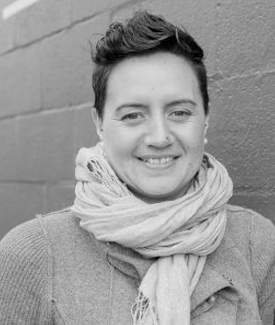
Lisa te Heuheu
Committee Member
Independent Consultant; Chief Executive, Te Ohu Kaimoana Trust
New Zealand
Lisa’s experience as a Māori environmental consultant will provide the program with rich expertise related to Indigenous natural resource management, planning, policy, and research in the Aotearoa/New Zealand context. This will provide an opportunity for international knowledge exchange of cross-cultural natural resource management strategies. Lisa is an invited member of the International Advisory Committee based on her experience in environment and health research.
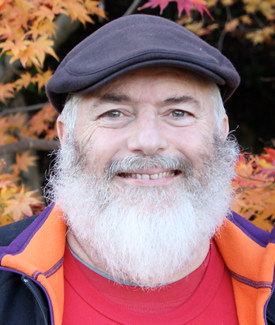
Richie Howitt
Professor, Acting Head of Department, Department of Geography and Planning
Macquarie University, Australia
Richie’s work on Native Title has integrated consideration of legal and social issues into consideration of reconfiguring various administrative and planning systems to allow statewide recognition of Native title as a basis for transforming Aboriginal participation in the processes of governance in that state. This work is widely seen as taking the lead in a new approach to resolution of cultural and racial conflict over native title. Richie is an invited member of the International Advisory Committee based on his experience in Native title negotiations in South Australia.
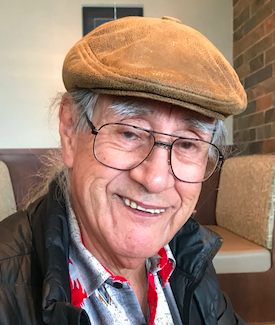
Elder Albert Marshall
Committee Member
Unama’ki Institute of Natural Resources
Albert Marshall is an Elder and highly respected Knowledge Keeper of the Mi’kmaw Nation; he lives in Eskasoni First Nation in Unama’ki, Nova Scotia. As the visionary behind the concept of Two-Eyed Seeing, Elder Albert specializes in integrative science that centres cross-cultural research collaboration. Elder Albert is a strong voice on issues of environmental and resource management in Unama’ki.
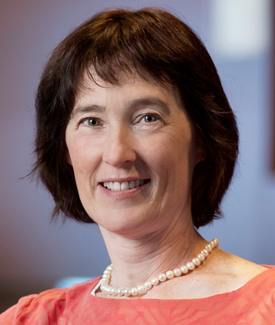
Kim Matheson
Committee Member
Research Chair in Culture and Gender Mental Health, Jointly held at The Royal’s Institute of Mental Health Research and Carleton University (Neuroscience).
Kim’s scholarship area includes health, with a particular consideration of culture and gender – both of which are integral facets of A SHARED Future. She will also offer opportunities for network and knowledge exchange through her multidisciplinary team of researchers working on a newly-funded SSHRC Partnership Grant on Indigenous youth resilience and prosperity. Kim is an invited member of the International Advisory Committee based on the close alignment of her scholarship and the program’s objectives of health equity and community-led approaches to achieving positive change.
Website: carleton.ca/diversity
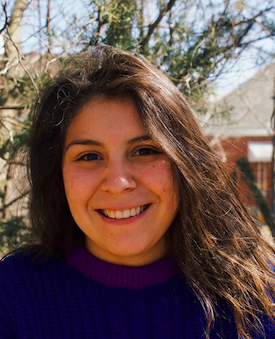
Serena Mendizabal
Committee Member
Serena Mendizabal (she/her) and is Cayuga, Panamanian Wolf clan from the Six Nations of the Grand River Territory. She is a recent graduate at Western University where she studied a double major in Indigenous Studies and Media, Information, and Technoculture. For over a year now, Serena has been a research assistant to Diana Lewis on the We Lived This Way Before project at Western. In September 2020, Serena will be continuing a Masters of Geography under the supervision of Diana with a focus in Indigenous Health and Environment. She is very passionate about sustainability, resource protection, and community-led clean energy and initiatives through my experiences working closely with both Six Nations of the Grand River Development Corporation, Student Energy, and of course, A SHARED Future!
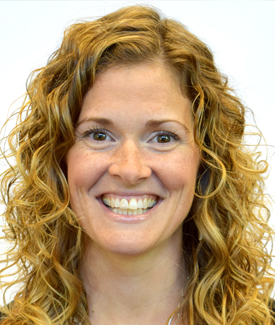
Michele-Lee Moore
Committee Member
Researcher, Stockholm Resilience Centre
Associate Professor, University of Victoria
Michele-Lee’s research seeks to build and mobilize knowledge about social innovations – ones that allow us to transform and build positive paths towards social-ecological-cultural resilience. Primarily, she has focused on topics of transnational and local water governance, social innovation, and transformation. In each of these domains, she has aimed to build new theoretical constructs and conduct empirical case study analyses, as well as undertake projects that begin to bring these fields together. However, beyond her water governance research, she also collaborates with scholars to examine case studies in other domains to gain insights on social innovation and transformation. Although typically based in Victoria, Michele-Lee is currently a visiting scholar with the Stockholm Resilience Centre in Sweden. Michele-Lee is an invited member of the International Advisory Committee based on her experience in natural resource governance and resiliency research.
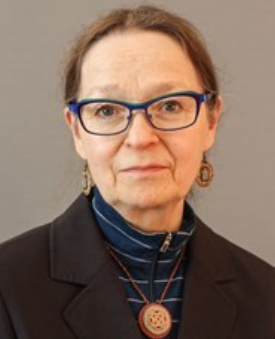
Margaretha Uttjek
Umeå University
I am Sámi, born and grew up close to mountains, in Northern Sweden. Participating in voluntary activities in my community. I am a traditional handcrafter.
I am a PhD and Associated Professor, Department of Social Work, Umeå University.
Research area/ interest: Sámi research issues; Decolonial issues; Indigenous research ethics; Indigenous methodologies. Participating in indigenous researchers’ network; collaborating with colleagues in Australia, Aotearoa/New Zealand, Canada, and US.
Experiences from using qualitative and quantitative methods. Teaching areas are social science and work; Sámi research issues; De-colonialism; Indigenous research ethics; Qualitative and quantitative methodologies. Social worker in social work practice for 33 years.
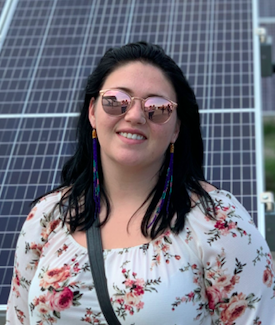
Siobhan Slade
NunatuKavut Community Council
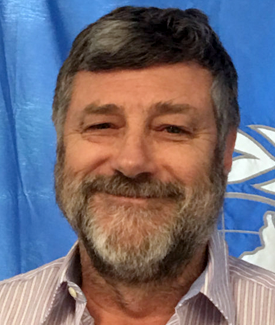
Peter Sly
Committee Member
Professor, University of Queensland
Director, Children’s Health and Environment Program
Director, WHO Collaborating Centre for Children’s Health and Environment
University of Queensland, Australia
Peter is the Director of both the Children’s Health and Environment Program, and the WHO Collaborating Centre for Children’s Health and Environment. He is a NHMRC Senior Principal Research Fellow and a paediatric respiratory physician with extensive research experience in respiratory physiology, developmental immunology and children’s environmental health. Peter joins the A SHARED Future team as the chairman of the board of directors for the Pacific Basin Consortium for the Environment and Health, and has offer this consortium as a Knowledge Translation opportunity for our program. Peter is an invited member of the International Advisory Committee based on his experience in environment and health research.

Jaisie Walker
Committee Member
Native Women’s Association of Canada
Jaisie Walker (they/them) is a Senior Researcher in the Health policy team at the Native Women’s Association of Canada in Ottawa where they coordinate and support national research relating to First Nations, Métis, and Inuit health priorities. Jaisie completed a Master of Arts in Gender Studies at the University of Lethbridge in 2020 where they were awarded two SSHRC graduate scholarships for their research using PhotoVoice to explore intimate violence with queer non-monogamous communities in Southern Alberta. Outside of their graduate research, Jaisie has had the privilege of assisting on research centered on trans primary healthcare, parental advocacy for trans and gender-diverse kids, and the intersections of gender and race in inheritance law. Jaisie’s research and work is guided by their decade of frontline experience working in domestic violence shelters, harm reduction housing, sexual health centres, and 2SLGBTQ+ peer support and education. Their interests include Mutual Aid, Scottish country dancing, and growing food with hydroponics.
Executive Body
The Executive Body represented the final decision-making body for all financial matters as they relate to A SHARED Future. Principal Investigators submitted proposals to the Programmatic Steering Committee for review, and once satisfactory, the proposal and budget was sent to the Executive Body for financial review and approval. The Executive Body was comprised of 4 voting members plus the Continuing Co-Director (Dr. Heather Castleden) as a non-voting member (unless needed to break a split vote).
Knowledge Translation Sub-Committee

Jeff Masuda
Canada Research Chair in Environmental Health Equity
Associate Professor, School of Kinesiology and Health Studies
Queen’s University
Director, Centre for Environmental Health Equity
Jeff is the Sex and Gender Champion on our team, and the Knowledge Translation (KT) Champion. In his capacity as KT champion, Jeff encourages the team to reflect critically on their individual and group relationship between knowledge and power, endeavouring to ensure the program contributes to health equity gains through institutional and professional reflexivity, decolonization, and promotion of Indigenous autonomy. As Sex/Gender co-Champion, he guides the team toward gender and sex balanced approaches in research design, analysis, and knowledge translation.

Heather Castleden
Continuing Co-Director
Impact Chair in Transformative Governance for Planetary Health
Professor, Department Public Administration, University of Victoria
Director, Heath, Environments, and Communities Research Lab
Heather has spent her academic career as a geographer working at the theoretical, methodological, and empirical nexus of power and resistance, relationships to place, and moral/ethical accountability. Her research is community-based and participatory, in partnerships with Indigenous peoples, communities, organizations, and governments on topics important to them, focusing on the politics of knowledge production in environment and health justice.
Website: www.heclab.com

Mary Beth Doucette
Purdy Crawford Chair
PhD Candidate
Shannon School of Business
Cape Breton University
Mary Beth is a Mi’kmaw who has excelled as a scholar, obtaining a SSHRC Canada graduate scholarship during her graduate studies at CBU. Her graduate research in the MBA focused on community economic development in First Nations, examining the role of cultural tourism. She engaged in primary research with Elders and band administrators at Membertou in regards to a proposed Heritage Park. She is a dedicated community volunteer which, combined with her background in industrial engineering and community economic development, made her a strong addition to the management group at Membertou as Director, Quality Assurance and ISO Compliance.
